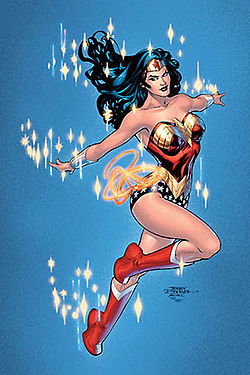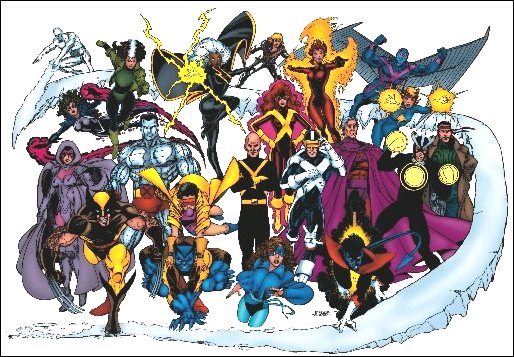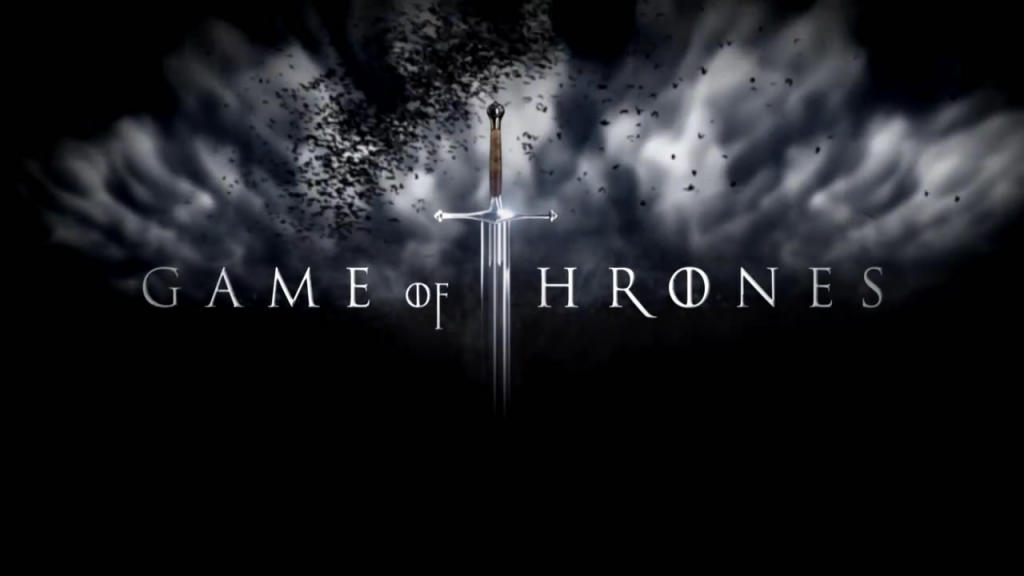I’ve never been ashamed of being a geek. It’s always been a central part of my personality and despite being picked on when I was younger it was never something I denied. I’ve always read comics, donned costumes, daydreamed of dragons, and indulged in video games. My apartment is full of action figures and I still dress up for midnight movie releases. But as of late I have picked up a pretty geeky hobby – one that even other geeks judge. What is this hobby, you ask? Well… I have begun Live Action Roleplaying: AKA LARPing.
You’ve probably heard of this activity in the peripheral of geek culture. There was recently a comedy movie that featured LARPing (Role Models). It is usually cast as mouth breathing, neck beard sort of nerdy. Granted, it is a bunch of geeks beating each other up with foam swords while wearing chain mail, but it is UNBELIEVABLY fun. I started just to see what it was like and now I cannot get enough of it.
A big part of LARPing is portraying a character and having some lore behind them. A lot of my fellow LARPers are in character when we are in combat or on adventures. And in order to be so intensely in character, your character has to be someone you have put a LOT of thought in to. You have to change your mind to think like them, drawing from their imaginary experiences, triumphs, and down falls. I created a Wood Elf Druid named Calathel for my adventuring, and since she came to life I think about her nearly every day with a desperate sort of fervor. I know what her favorite drink is (honeyed mead), her favorite weapon (two swords, florentine style) and even her fondest childhood memory (taking care of an orphaned fawn). The more she dwells in my mind, the more I know about her – it has become less like I am making her up and more like she is revealing parts of herself to me.
As a young girl I was ALWAYS daydreaming, ALWAYS imagining, ALWAYS forcing my little brother to wear dresses and act out the mad fantasies I saw in my brain. I would lay in bed imagining I was a Power Ranger, or a Sailor Scout, or that I had mutant powers and Professor Xavier came to find me. I saw unicorns out of the corner of my eye, invented elven princes to sweep me away into the land of the fae, and waited for my letter from Hogwarts to come. I wrote – oh goodness did I write. From the moment I knew how to hold a pen I was scribbling down the stories I saw in my head. I had a tape recorder when I was only 8 so I could make notes of the bizarre ideas I constantly harbored (a lot of these ideas I am not writing into short stories, thanks to recently unearthing my old tape recorder). Wordsmithing became my favorite thing in the world. I could give life to anything and everything. It was heady and amazing.
I was homeschooled in the wilderness of Alaska. As can be expected, I didn’t have a lot of friends. So I wrote friends. I made up fantastic worlds for myself. I put my sweat and tears and ideas into the characters I wrote. They became realer to me than the kids I saw at horse camp. They became realer to me than the other children who poked fun at me in Sunday School.
And now I am writing for a living, and my love of creating elaborate fantasy worlds and characters-who-become friends has not waned. I feel that through writing for as long as I have and now through LARPing a completely different character that I know a thing or two about how to flesh out an imaginary person into an almost tangible soul.
Strong characterization is one of the most basic and necessary parts of story telling. People need to be able to relate and feel intrigued by the characters they are reading about – they do not want cliches or two dimensional personalities. Do you think The Walking Dead would have been as popular as it is if the characters weren’t all unique, with intense back stories and broad personalities? Do you think the motley crew of X-men would be as fascinating as they were if they weren’t all incredibly unique, with twisting and complex pasts and futures? We as comic book fans LOVE strong characters – we latch on to characters we like and treat them with reverence. We know everything about them, as if they are a friend or a love interest. We know how they think, how they would react to situations, where they came from. We feel fondness for them; we rejoice with them in their triumphs and weep over their misfortune. A character death can hurt almost as badly as losing a loved one.
Every successful book or comic book has had strong, interesting characters. So if you are trying to write your own comic, you need to understand how to make characters that the readers will latch on to (or despise, but there needs to be some sort of emotion involved).
I begin all of my character invention by first asking myself questions.
Who are they? (Their name, age, birthday)
What do they look like? (Hair color, body type, eye color, facial structure, skin color, race) Sometimes during this step it helps me to think of them as a celebrity or a model. It helps me, personally, to be able to give my characters some sort of face.
Where are they from? Why are they where they are now?
What is their past? Has anything traumatic happened? How does it tie in with the storyline you are working with?
What are their likes? Dislikes? Strange quirks and habits that make them uniquely themselves?
And finally: How do they tie in with the rest of my characters? Where do they stand in relationships?
I write down the answers to all of these questions like a questionnaire. Thus, I can always refer back and make changes as I go. When figuring out how they tie in with my other characters, I oftentimes doodle little “trees” if you will. Visual stimulation seems to help, and then you will always have something to look back on. DON’T TRY TO KEEP EVERYTHING IN YOUR BRAIN. No matter how much you think you will be able to keep track of things, you won’t. Do you know every obsessive detail about your friends? Your spouse? You need to know these imaginary people better than the closest person in your life. You have to make them a part of you.
Which brings me to my next point. Now your character has a name, a face, and roughly fleshed out background. Now it’s time for you and this character to meet. Put down the notebook and mull over this person for a couple of days. Consider them like they are someone you just met. Ask them pertinent questions about themselves. Try on their personality for size when you are laying in bed at night or lost in thought at that work meeting. Present this imaginary person with real scenarios and see how they would react. Write journal entries from their point of view. Consider other characters from their point of view – try to see what they would see or feel what they would feel. In order to be a truly successful writer, you truly have to FEEL YOUR CRAFT. It may make you seem a bit like a crazy person for a couple of days, but trust me: it’s going to be worth it.
Okay? You’re now capable of walking and talking like your character. You FEEL them. You know them like an old friend. You could talk about them for hours to someone like they were an old friend or a lover. Now you thrust them into your story. Now you put them into a comic because NOW you know how they are going to behave in every scenario you write. To me, this is the most magical part. Because it’s like the story begins writing itself. My mind is so used to thinking as these characters that it’s as if THEY are writing the story, not I. They are pulling me through the outlined plans I had and fleshing them out, putting in situations I never had planned for originally. And when I finally stop typing and look back at my work, it’s as if I have snapped out of a trance.
My methods may not work for everyone. But at current count I’ve written 3 comic book scripts, 2 novels, and more short stories than I could ever quantify. And I could have never have done ANY of this without the help of these “imaginary” people.
Molly McIsaac looks pretty cute in elf ears and tries to make a fool of herself in 140 characters or less on twitter.





I never understood why anyone should turn their nose up at LARPing or anything else like that, especially fellow geeks. It’s like, have you ever played Elder Scrolls? Because that is pretty much the same thing as LARPing except you are inside, looking at a TV, playing by yourself – instead of outdoors interacting with other human beings.
I have heard many writers admit to not knowing where their story was going while they were in the process of writing it. I think this is primarily the hallmark of writers who invest heavily in character. These writers seemingly sets up the initial conflict and then allows their characters to lead the way to story’s conclusion, pretty much as Ali described.
Personally, I am envious of this method of writing. I tend to start thinking about story ideas from a broad perspective, basically with the theme or a genre (e.g. space opera, corporate dystopia). I then tend to develop the plot from there, and finally invent characters that would logically come into conflict and act how I need them to act to support the plot. If starting from scratch with new characters, there is nothing inherently wrong with this approach. The problem comes when established characters act out of character and become plot robots (see Marvel’s Civil War).
I think the reason I tend not to start with character is because I am afraid that if I allow the characters to dictate the story then it might end up being a really boring story. (Character A says “Why can’t we all get along?”, Character B says “You’re right!”, and then they go get orange smoothies. The end.) And, my initial spark of excitement came from the big idea, so I tend to want to spend time developing that. What if the characters I create aren’t interested in addressing the big idea? Or, worse, what if they end up proving the opposite point? I am not saying these are good reasons. I am just being honest with how my mind works.
“ALWAYS forcing my little brother to wear dresses”, heh, that was my girl cousins and my cousin Robert. My uncle would $#!T himself, but Robbie turned out fine. For the most part. Just kidding Robert. I was madly in love with Tanya, one of my cousin’s friends that whenever they all were role playing (It usually centered around a version of Snow White or Cinderella) I would always play the bad guy just to try and kidnap her or get close in any way. I bit her once (Hey, I was playing the bad guy) because I was too scared to tell her how I felt about her.
Okay, back to the present: as far as LARPing goes, have fun ‘cuz life’s too short. On the topic of writing characters there’s some good stuff in Stephen King’s On Writing to go along with McIsaac’s article.
Remember: One does not simply LARP into Mordor.
I have found in my writing that these well-built characters are the most fun to write, and it does come down to knowing everything about them. As ctrosejr mentioned, though, I have had characters basically turn to me and say, “We don’t want to do this anymore” and completely derail the story. It’s unpleasant, but it means I either have to make some characters who will do it, or find a new story for these stubborn ones.
I’d add one point, though: while it’s a boon the the writer to know every last detail about the characters, it’s not always necessary for the reader to know everything. It can sometimes be a struggle to include only what’s necessary and not overburden the reader with details that just aren’t relevant to what’s going on.
Molly mentioning just how much of a geek she is is quickly becoming the “bam, pow, biff: comics aren’t for kids anymore” for me. I think you’ve proven your geek cred and I don’t think it was needed in this article.
Is anybody else tired of the word geek? I love comics, but I don’t want to be a “geek” or a “nerd.” I don’t want “geek cred”, I just want to enjoy creative stuff.
I liked the first part considering half of the article was about that.
(what g0of was saying i mean)
I had a college lecturer that once said that the best characters you create are the ones you have arguments with in your head, because they’re so different from you.
LARPing sounds fun as hell.
Toy manufacturers like NERF! are missing out on a huge opportunity to start Cosplay NerfWar theme parks.
Also, I just started a new project, so thanks for the kick in the ass.
8)